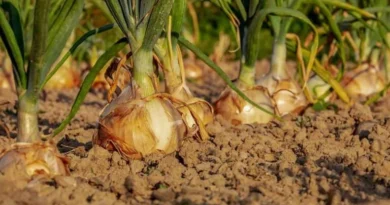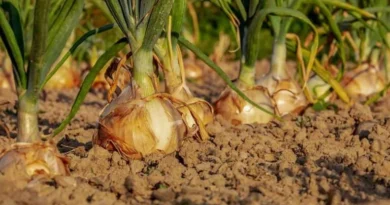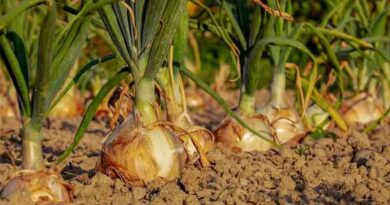The Impending Impact of India’s Onion Export Ban on Farmers and their Income
05 September 2023, New Delhi: India, known as the “Onion Capital of the World,” has recently imposed a ban on the export of onions, a staple vegetable in numerous Indian households. This decision, made in response to the rising domestic prices and the need to stabilize the market, is expected to have a significant impact on farmers who rely heavily on onion cultivation for their income. Agriculture experts suggest 5 ways in which the ban on onion exports will affect farmers and their livelihoods.
- Income Loss:
The export ban on onions will inevitably lead to a direct loss of income for Indian farmers. Onions are a major cash crop for many small-scale farmers, and the ban will deprive them of a significant source of revenue. The sudden restriction on exporting onions, which were previously in high demand globally, will force farmers to rely solely on the domestic market, which may not offer comparable prices or demand. - Price Instability:
With the ban in place, the domestic market will experience an influx of onions that were originally intended for export. This surplus supply could potentially lead to a sharp decline in prices. Farmers who have already invested in onion cultivation and incurred production costs may struggle to recover their expenses. The resulting price instability may adversely affect their profitability and financial well-being. - Storage and Perishability Challenges:
Onions are perishable commodities that require appropriate storage facilities to ensure their longevity. In anticipation of export, farmers often invest in cold storage infrastructure and technologies to preserve their onion harvests. However, with the export ban, farmers will face the challenge of storing surplus onions for an extended period, which could lead to additional costs and losses if proper storage facilities are lacking. - Dependence on Government Support:
The ban on onion exports highlights the vulnerability of farmers and their dependence on government support. To mitigate the adverse effects of the export ban, the government must step in and provide necessary assistance to affected farmers. This support can come in the form of financial aid, subsidies for storage infrastructure, or alternative crop diversification programs to minimize the income shock caused by the export ban. - Long-term Consequences:
The ban on onion exports may have long-term consequences for the agricultural sector in India. Farmers, discouraged by the sudden loss of income and uncertain market conditions, may reduce their onion cultivation in future seasons. This reduction in production could lead to a shortage of onions, potentially driving up prices in subsequent years. The impact may also extend beyond individual farmers, affecting the overall economy due to reduced agricultural output and employment opportunities.
The ban on onion exports in India is expected to have a significant impact on farmers and their income. The loss of a major revenue stream, coupled with potential price instability and storage challenges, poses a substantial threat to the financial well-being of onion farmers. The government must provide adequate support, both short-term and long-term, to mitigate the adverse effects of this ban and ensure the sustainability of the agricultural sector in the country.
Also Read: Swaraj launches 5 new tractors in the 40 to 50 HP category; Onboards MS Dhoni as brand ambassador
(For Latest Agriculture News & Updates, follow Krishak Jagat on Google News)















